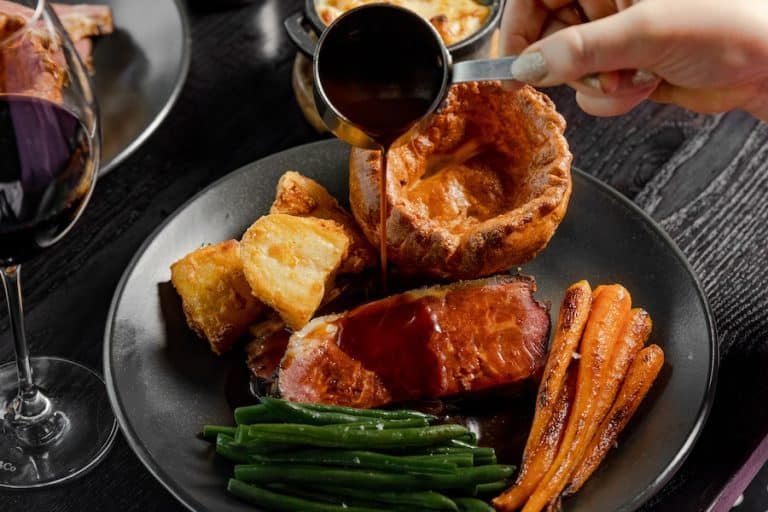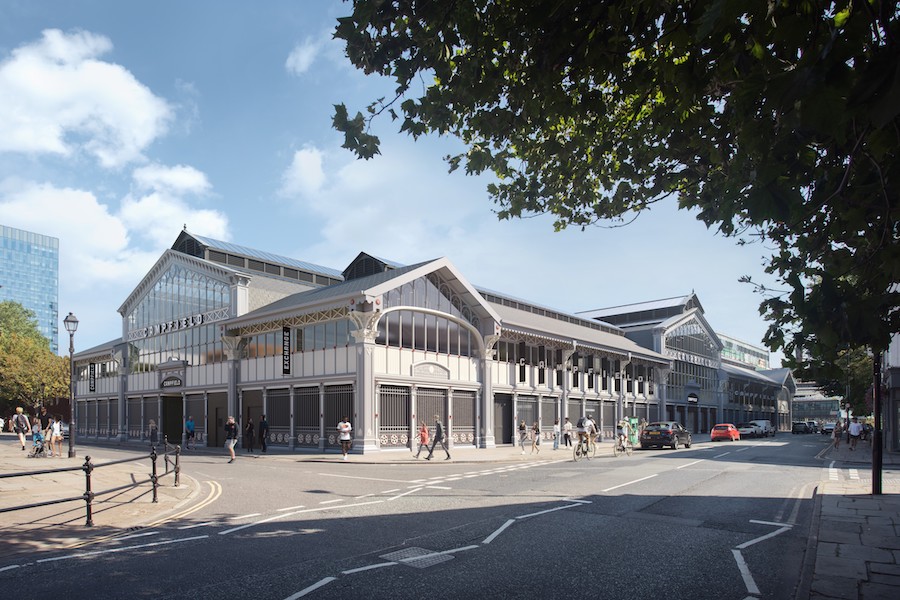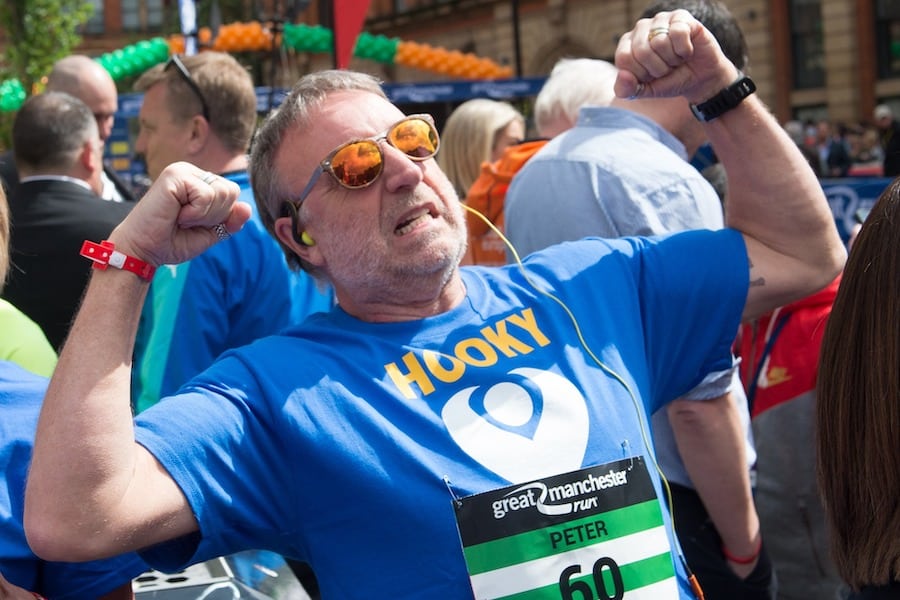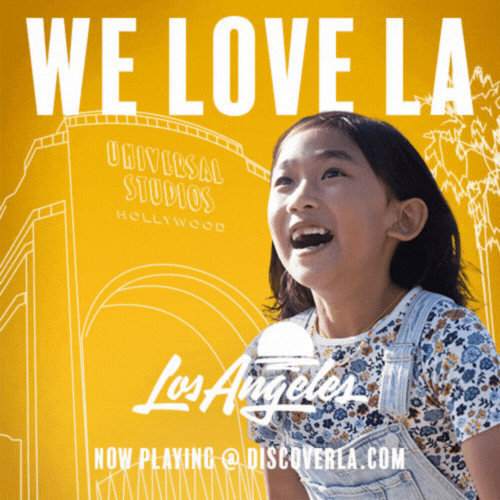The welcoming space in the Northern Quarter where you can discuss death
- Written by Thom Bamford
- Last updated 5 days ago
- City of Manchester, People
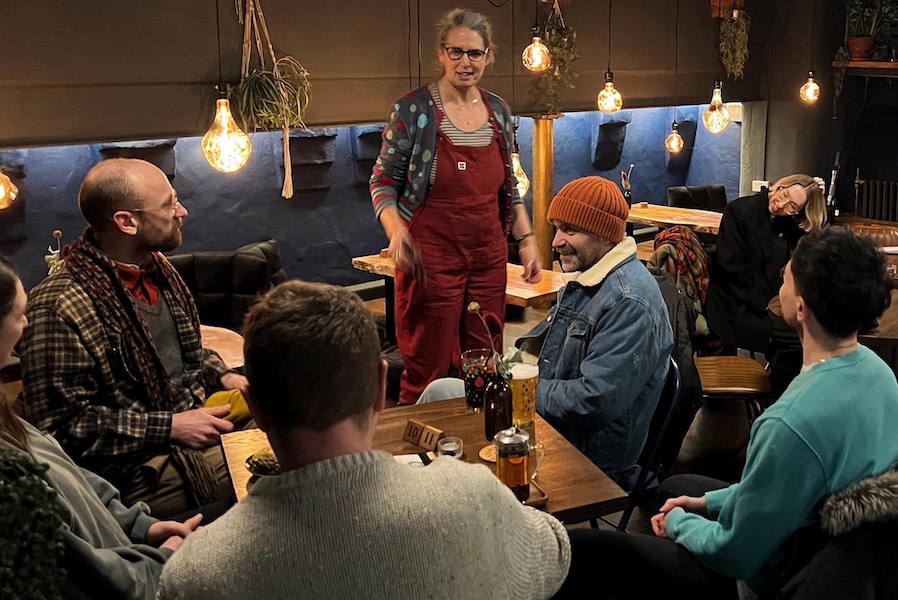
Once a month, inside a welcoming community space called Hinterland, strangers gather around tables not to network or brainstorm business ideas, but to talk about death.
The setting is warm, the kettle is always on, and the conversations, while unstructured, run deep.
Welcome to Death Cafe.
“Death is the one thing that unites us all,” says Sanghadhara, the Buddhist practitioner from Mexico who runs the sessions and founded Hinterland, a not-for-profit community interest company nestled in Manchester’s Northern Quarter.
“Everyone engages differently with death, but really, it’s the one thing that’s definitely going to happen to us. It should unite us all to open up about it—the people we’ve lost, the people we miss, and our anxieties and thoughts around passing on.”
At first glance, the idea of voluntarily spending your evening talking about mortality might sound macabre or depressing. But the reality is far from it. The Death Cafe movement—which began in Hackney in 2011 and has since spread to over 90 countries—is about breaking the taboo, reclaiming the conversation, and, paradoxically, learning how to live more fully.
Death Cafe

“A little bit about me,” Sanghadhara began, “I’m a Buddhist from Mexico, and in Mexico we celebrate the Day of the Dead. That’s a big part of our culture. It’s a national holiday—people use it to remember those who have died, but also to celebrate the love that’s still present.”
It’s this combination of reverence and connection that Sanghadhara carries into Hinterland’s monthly Death Cafes.
“In Buddhism, reflections around death are very important,” he explained. “It’s part of how we engage with life, with each other. But that’s not always the case in Western cultures. Here, death is often pushed to the margins.”
That cultural silence is something Death Cafe seeks to counter. And Sanghadhara’s efforts in Manchester are slowly chipping away at the wall of discomfort many people feel around mortality.
What happens at a Death Cafe?

“There’s no agenda,” Sanghadhara said simply. “No presentation. No objective. People just come and talk.”
The gatherings typically involve a small group sitting around a table, with people welcome to share their thoughts, experiences, fears, and stories. Or they can simply listen.
“Some people are very open and eager to share, while others prefer to remain quiet,” he explained. “There’s no pressure. Some people come just to witness the conversation unfold.”
This gentle approach is part of the charm. The emphasis is on creating a safe, non-judgmental environment where people can reflect on their own terms.
“Sometimes, it’s the first time someone has ever talked about death in their life. For others, it’s a chance to revisit something they thought they’d dealt with. Everyone’s experience is different.”
A space for honest conversation

Death, despite being universal, is strangely absent from everyday dialogue. We might discuss birth, marriage, even divorce—but death often remains hidden behind euphemism and avoidance.
“It’s strange, isn’t it?” Sanghadhara reflected. “In a way, death is the one certainty in life—something every single one of us will experience. Yet it remains a taboo subject.”
Modern secular society, he suggests, has fostered a kind of cultural amnesia around mortality.
“It’s almost as if acknowledging death makes it more real,” he said. “But if we don’t talk about it, how can we ever understand it—or prepare ourselves emotionally?”
The result is a lack of language, or even emotional tools, for dealing with grief, loss, and the broader implications of mortality.
“That’s what this space tries to address,” he said. “It’s not grief counselling. It’s not therapy. But it is a form of connection—an opportunity to make peace with something we all carry inside us.”
While every session is different, Sanghadhara recalls one that left a lasting impact on him.
“I interviewed a doctor once—someone who deals with death all the time in a professional setting. You’d think he’d be used to it. But he said that even though he regularly has to break bad news to families, he felt emotionally disconnected from death. It was all protocol and procedure.”
That session gave the doctor something his job hadn’t: a personal, human connection to the concept of death.
“He said talking about it in this setting made him feel more alive. It gave him space to engage with death on an emotional level, rather than just a professional one.”
It’s moments like this that show the power of the Death Cafe format. Even those who confront death regularly don’t always have a space to truly process it.
The epiphany effect
Do people leave changed?
“Absolutely,” Sanghadhara said. “While no one has stood up and declared a life epiphany, I know for a fact that these sessions make people reconsider things. Their relationships. Their priorities. How they spend their time.”
And in some cases, simply saying something out loud is all it takes.
“Some people find it easier to share with strangers than with family or friends,” he added. “There’s a kind of emotional safety in that.”
But these aren’t always heavy or somber gatherings. On the contrary, some of the conversations are surprisingly joyful.
“People laugh. They reminisce. There’s lightness, and even humour. Just as life is full of emotion, so is death.”
Creating an accessible space
So what if you’re curious, but unsure whether it’s for you?
“The invitation is open,” Sanghadhara reassures. “You don’t need to prepare anything. You don’t need to talk. Just show and listen. If and when you feel comfortable, you can join in.”
Accessibility is key to the ethos of the Death Cafe movement. Hinterland’s sessions are free, open to everyone, and take place in a calm, welcoming space.
“Death Cafe isn’t about pushing people toward a conclusion,” Sanghadhara said. “It’s about creating a space to reflect, however that looks for you.”
A global movement with local impact
The first Death Cafe was held in London in 2011 by Jon Underwood and his mother, psychotherapist Sue Barsky Reid, inspired by the work of Swiss sociologist Bernard Crettaz. Since then, the format has gone global, with over 20,000 Death Cafes held across 93 countries.
Each one follows the same core principles: no agenda, no products, no counselling—just open conversation.
The movement is entirely volunteer-led, run on a not-for-profit basis. And here in Manchester, thanks to Sanghadhara and the community at Hinterland, it’s finding fertile ground.
“We started the sessions properly in September,” Sanghadhara says. “And since then, the reception has slowly grown. People are really getting on board with the idea.”
Hinterland itself has become a home for meaningful discussion, also hosting philosophy nights and other events aimed at conscious living.
“At the heart of things, we’re here to allow people to be mindful,” Sanghadhara said. “To have deep conversations. To connect with others and with themselves.”
And once a month, that means staring death in the face—and finding life on the other side.
Want to join the conversation?
Hinterland’s Death Cafes take place monthly (usually the third Wednesday of the month) in Manchester and are open to all. Sessions are free, with refreshments provided.
You can get tickets to the next Death Cafe by clicking here
To learn more, visit Hinterland’s website or follow them on social media for upcoming dates.
You can find Hinterland at: Basement, 16-20 Turner St, Manchester M4 1DZ
Because sometimes, the best way to live more fully is to talk about what we fear the most—with strangers who become something more.
- This article was last updated 5 days ago.
- It was first published on 11 April 2025 and is subject to be updated from time to time. Please refresh or return to see the latest version.
Did we miss something? Let us know: press@ilovemanchester.com
Want to be the first to receive all the latest news stories, what’s on and events from the heart of Manchester? Sign up here.
Manchester is a successful city, but many people suffer. I Love Manchester helps raise awareness and funds to help improve the lives and prospects of people across Greater Manchester – and we can’t do it without your help. So please support us with what you can so we can continue to spread the love. Thank you in advance!
An email you’ll love. Subscribe to our newsletter to get the latest news stories delivered direct to your inbox.
Got a story worth sharing?
What’s the story? We are all ears when it comes to positive news and inspiring stories. You can send story ideas to press@ilovemanchester.com
While we can’t guarantee to publish everything, we will always consider any enquiry or idea that promotes:
- Independent new openings
- Human interest
- Not-for-profit organisations
- Community Interest Companies (CiCs) and projects
- Charities and charitable initiatives
- Affordability and offers saving people over 20%
For anything else, don’t hesitate to get in touch with us about advertorials (from £350+VAT) and advertising opportunities: advertise@ilovemanchester.com

RNCM strikes major partnerships to power next generation of Manchester musicians

Failsworth’s funniest export wants your laughs (and some new parquet flooring)
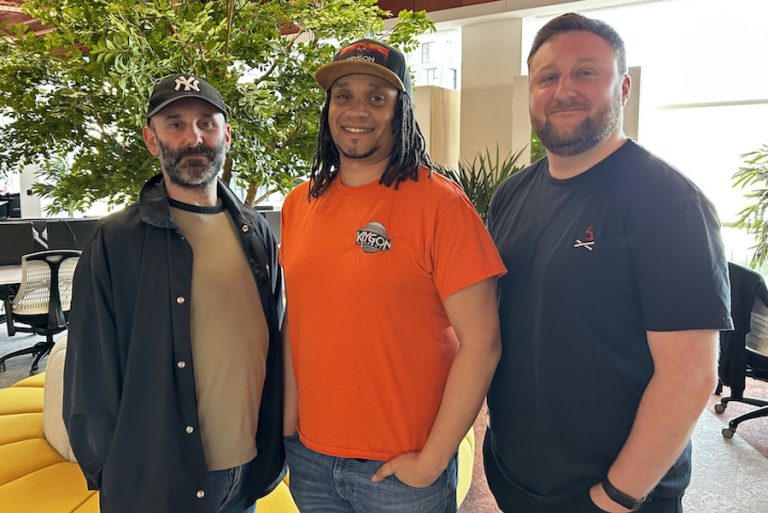
Meet the Salford creators changing the face of digital storytelling
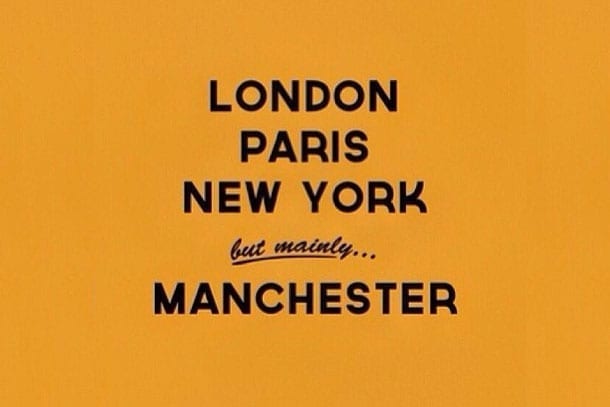
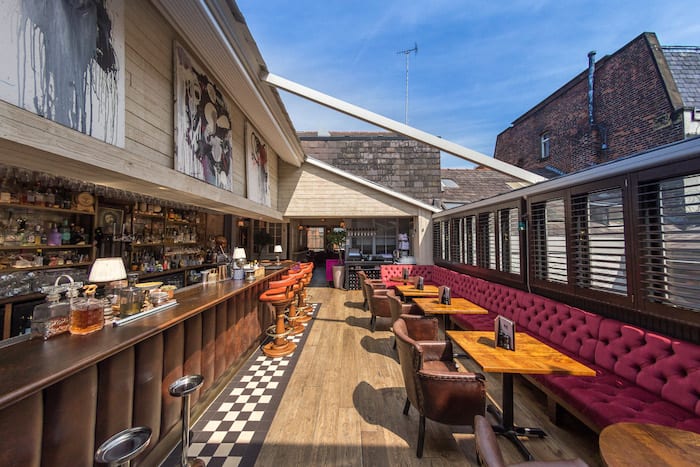
Irresistible tapas spots in Manchester that’ll make you feel like you’re in Spain
